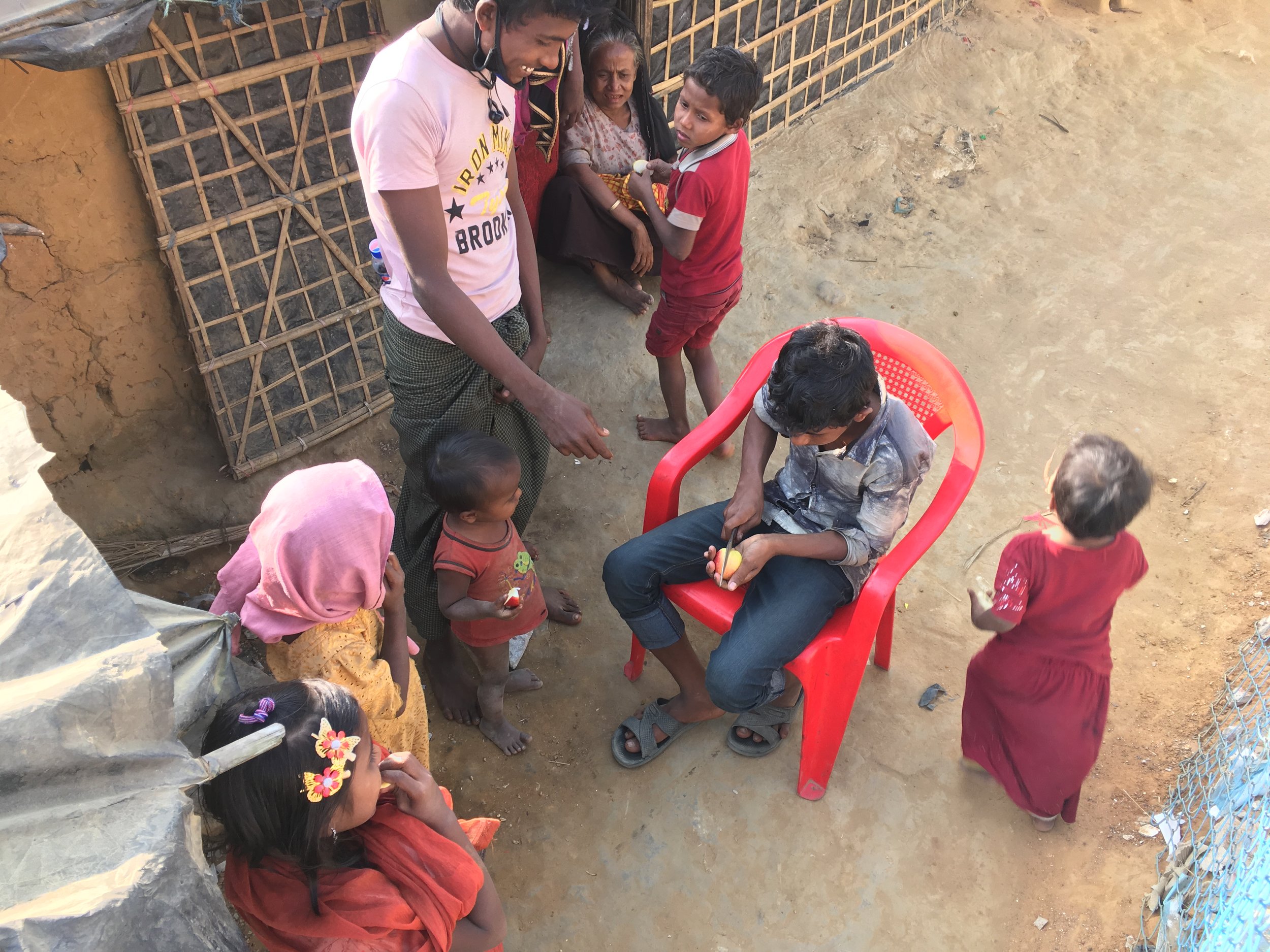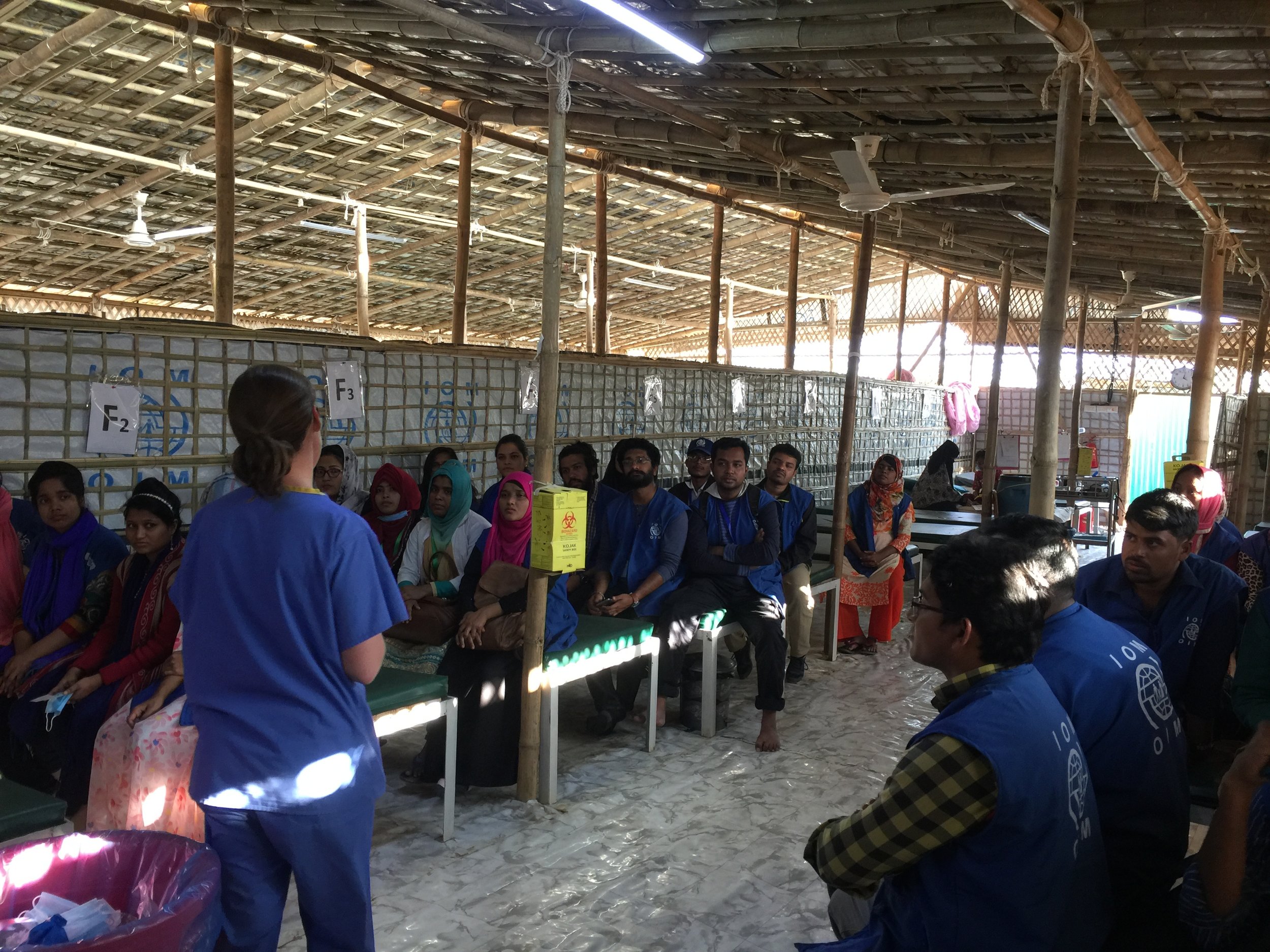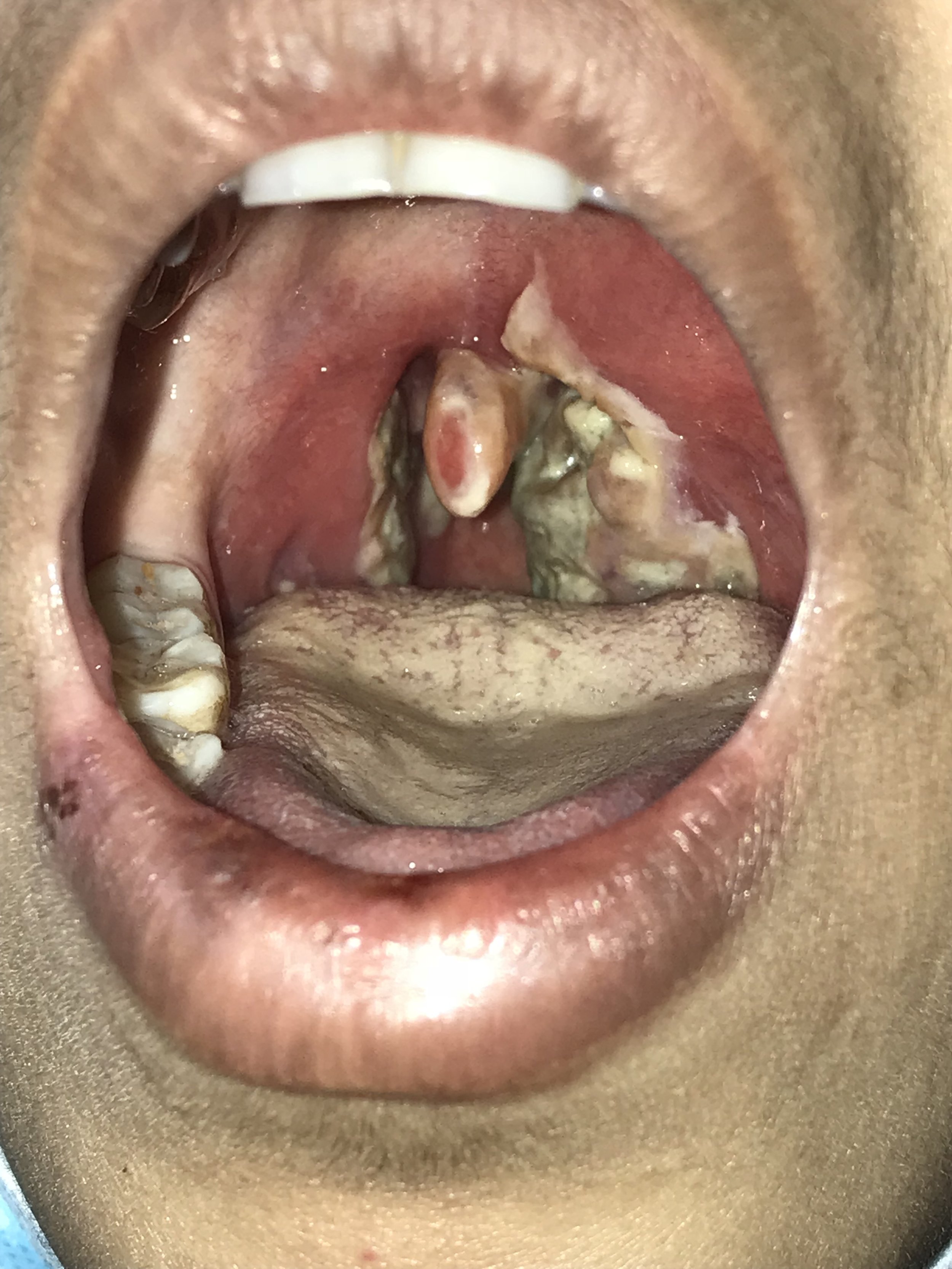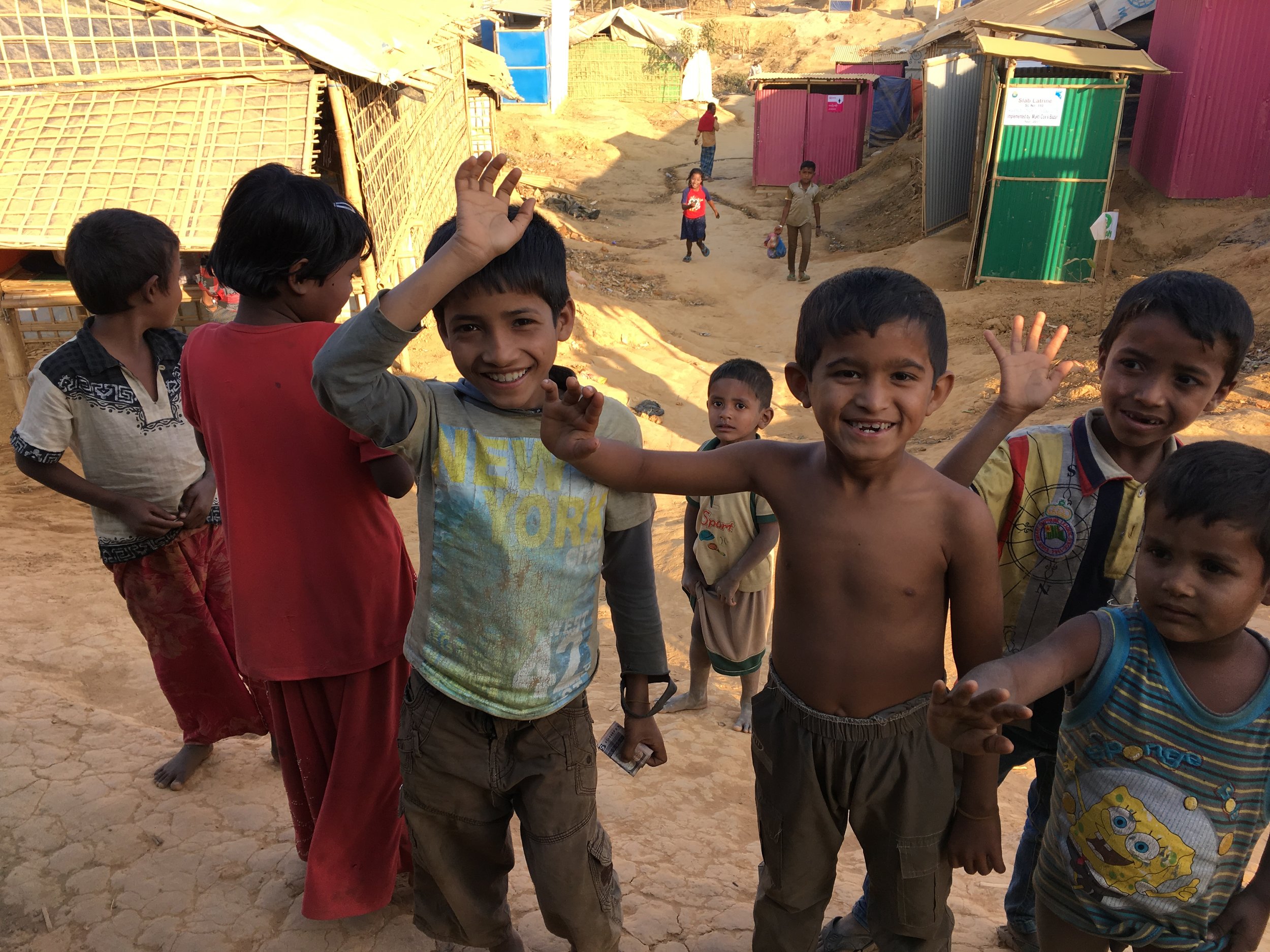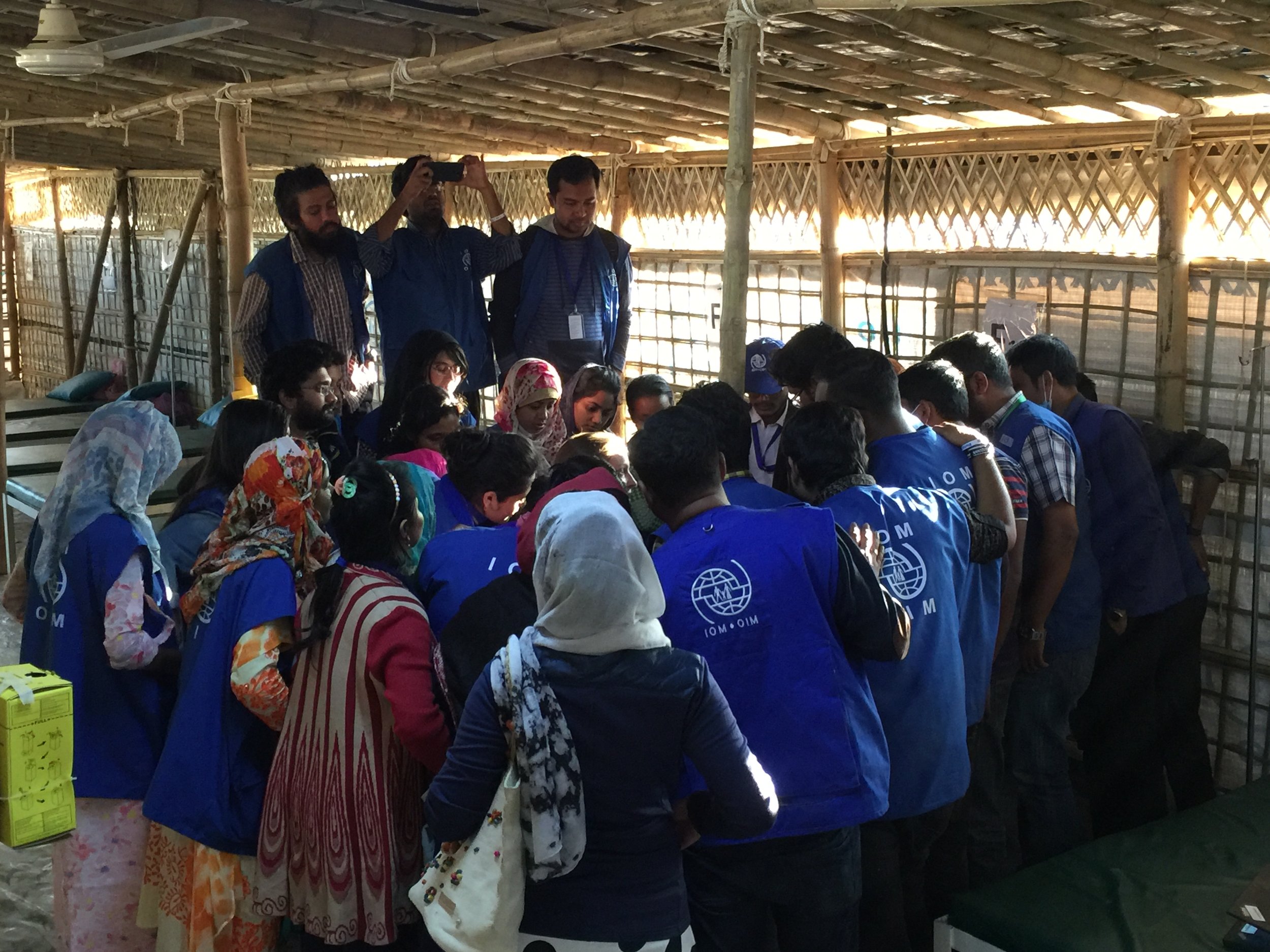To DAT or not to DAT, that is the question!
You can see from the pictures that some diphtheria pseudo membranes are fairly obvious. Nobody would miss that. Many however are far trickier and as doctors we all have different thresholds for what we would treat with DAT - diphtheria anti toxin. We’ve had a couple more significant reactions to the treatment and of course there isn’t an endless supply. Also it’s incredibly time consuming and as a team we can only DAT 3 at once maximum. Interestingly we are seeing less children these days and more adults, particularly working men. This is a worry as this population isn’t vaccinated as the WHO vaccination campaign has so far focussed on the under 15s. Less paediatric patients reassure us that the vaccination programme is working at least and there’s talk of extending it to adults soon.
This last few days of the trip has been focused on our exit strategy. Our wards are closing and we will no longer give DAT in our centres. The local staff will provide a triage service only and refer potential diphtheria patients on to MSF for treatment. Training them in referral, transfer and triage is the most important aspect of what we are doing now. Both the medical and nursing teams we leave behind are motivated but very junior. My training was fairly straight forward - ABC’s and resuscitation of the sick child. It was well attended.
We visited an MSF camp today as well as the Malaysian field hospital. Very impressive set ups. We all know that cholera is coming next and facilities are being prepared for this. The mud huts and roads of the refugee camp will become a wash in the monsoon and the threat of typhoons snd hurricanes are always present... the next outbreak is on its way. Interestingly there are still new people arriving. We see them leaving the holding centre with their initial ration pack donated to them to make some sort of life here.
There is a sadness at leaving this place. It’s been an amazing experience. Our team has gelled really well and in these circumstances that doesn’t always happen. We feel to have been part of the local Bangladeshi team too and some of them move on now as we do. And of course we leave the Rohingya. A population of people who wish to live in safety and peace. It is very humbling when you pass a family the apple from your packed lunch and a boy splits it into 9 pieces to share with the entire family. It makes you realise how lucky you are. And yet on the other hand as I leave the dusty streets with children waving goodbye to us I am reminded that whilst they have little of material value, they have family and community and hopefully some healthcare that we have been part of providing.
